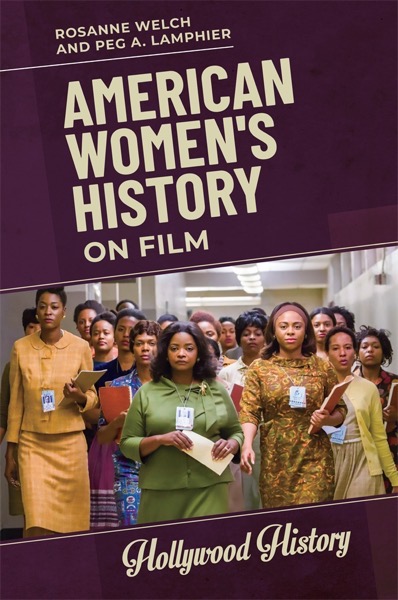Nearly two years ago I had the pleasure of being invited to join a panel at the then upcoming SCMS (Society of Cinema and Media Studies) conference set for Seattle. As you know that was canceled due to Covid with the hopes of reconvening in Colorado in 2021. That became a virtual conference but our group decided to reapply our panel and we four were able to ‘meet’ on Zoom on Sunday and present: Writing Between the Lines: Feminist Strategies for Historical Absences, Cliché, and the Unreliable Narrator.
Here you can watch a clip from my part of the presentation,
“When Men Forget Women: The Many Ways Male Screenwriters Fail to Mention their Female Colleagues in Oral Histories”
Francis Marion. So female writers are their own unreliable narrators. She was throwing away all her papers at the end of her career. She felt nobody would care. Her secretary dragged them out of the trash and gave them to Carrie Beauchamp who ended up writing “Without Lying Down”, right? This is one of the most wonderful books about the history of Francis Marion which wouldn’t have existed because the female writer herself threw away her work. She did not think that it was worth keeping. She didn’t think anybody would care. Likewise, Carrie worked on “Anita Loos Rediscovered” I don’t think Anita Loos needed rediscovering because Anita was very good at taking care of herself. So I apologize to Mr. Stemple for having to say his book didn’t tell us what it should but I’m not going to apologize to Mark Norman because he knew better. His book came out after Carrie’s book did and he actually interviewed Carrie and he refused to use the information from her book in his. So there.
Watch this entire presentation
Podcast: Play in new window | Download
Subscribe: RSS
![06 Female Writers Can Be Unreliable Narrators from When Men Forget Women: The Many Ways Male Screenwriters Fail to Mention their Female Colleagues [Video]](https://rosannewelch.com/wp-content/uploads/2022/05/rmw-scms-2021-06.jpg)


![11 Wring Book Reviews as Intro To Journal from In Conversation with Dr. Rosanne Welch and Intellect Books [Video]](https://rosannewelch.com/wp-content/uploads/2022/05/rmw-intellect-11.jpg)

![05 Unreliable Narrators In Textbooks from When Men Forget Women: The Many Ways Male Screenwriters Fail to Mention their Female Colleagues [Video]](https://rosannewelch.com/wp-content/uploads/2022/05/rmw-scms-2021-05.jpg)
![10 More On A Special Issue on Women Screenwriters from In Conversation with Dr. Rosanne Welch and Intellect Books [Video]](https://rosannewelch.com/wp-content/uploads/2022/05/rmw-intellect-10.jpg)
![04 Joan Harrison & Jeannie Macpherson from When Men Forget Women: The Many Ways Male Screenwriters Fail to Mention their Female Colleagues [Video]](https://rosannewelch.com/wp-content/uploads/2022/05/rmw-scms-2021-04.jpg)
![09 A Special Issue on Women Screenwriters from In Conversation with Dr. Rosanne Welch and Intellect Books [Video]](https://rosannewelch.com/wp-content/uploads/2022/05/rmw-intellect-09.jpg)
![03 Teaching the History of Screenwriting from When Men Forget Women: The Many Ways Male Screenwriters Fail to Mention their Female Colleagues [Video]](https://rosannewelch.com/wp-content/uploads/2022/05/rmw-scms-2021-03.jpg)
![08 More On Dorothy Parker and A Star Is Born from In Conversation with Dr. Rosanne Welch and Intellect Books [Video]](https://rosannewelch.com/wp-content/uploads/2022/04/rmw-intellect-08.jpg)
![02 How Do We Get Forgotten? from When Men Forget Women: The Many Ways Male Screenwriters Fail to Mention their Female Colleagues [Video]](https://rosannewelch.com/wp-content/uploads/2022/04/rmw-scms-2021-02.jpg)